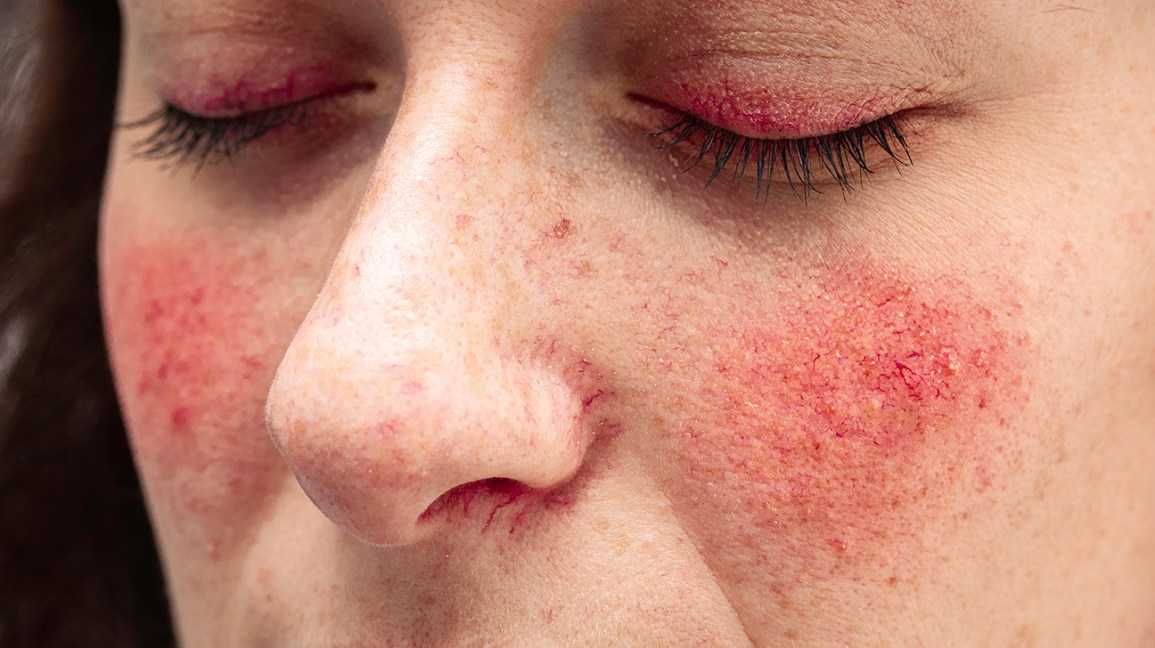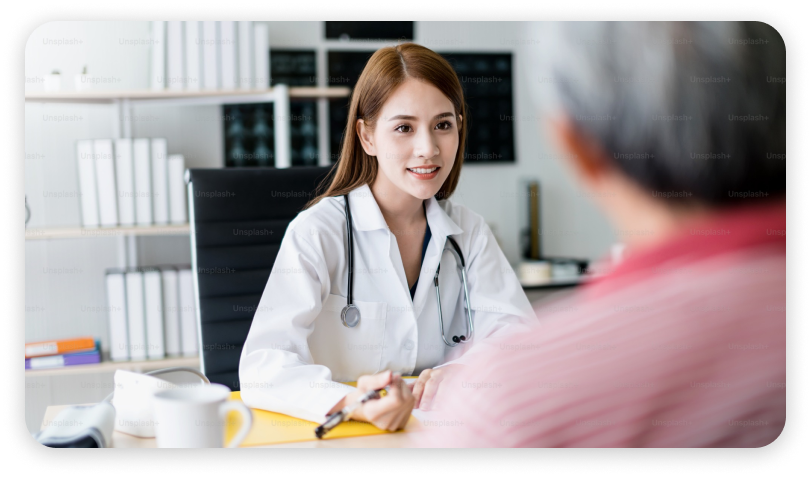[su_divider top=”no” style=”double” divider_color=”#952524″ link_color=”#952524″ size=”2″ margin=”10″]
Acne rosacea? What are the types? What are the causes? What are sign and symptoms? How can it be diagnosed? How to treat it? What is the differential diagnosis? How can it be prevented? What are the complications? How can homoeopathy help you? All of this answered, in this post and of course our doctors always there to help you. Just fill in your details in the form down below and we will answer all your questions for FREE!
[su_divider top=”no” style=”double” divider_color=”#952524″ link_color=”#952524″ size=”2″ margin=”10″]
[sc name=”query”]

What is acne rosacea?
Acne rosacea (commonly referred to as rosacea) is a chronic inflammatory skin condition that mostly affects the central part of the face. It causes redness, papules, pustules, and visible blood vessels in the face. These signs and symptoms may increase for few weeks to months and then go away for a short time.
What are the types of acne rosacea?
• Erythematotelangiectatic rosacea: Symptoms include redness of skin with flushing, discoloration, and visible blood vessels.
• Papulopustular rosacea: Symptoms include flushing, swelling, and acne, sometimes filled with pus.
• Phymatous rosacea: Symptoms include thickened, bumpy texture of the skin.
• Ocular rosacea: Symptoms include redness, irritation of eyes, and swollen eyelids.
What are the causes of acne rosacea?
The cause of acne rosacea is not fully known. It may be due to a combination of familial and some environmental factors. These can be some triggering factors, which are as follows:
• Eating spicy foods
• Dairy products
• Smoking or alcohol
• Drinking hot coffee or tea
• Having the intestinal bacteria Helicobacter pylori
• Red wine and other alcoholic beverages
• Temperature extremes
• Sunlight or wind
• Emotions, stress, or anxiety
• Exercise
• Medicines that help to dilate blood vessels, including medications for blood pressure
• Various cosmetic products
Who is more likely to get acne rosacea?
• Rosacea is more commonly seen in people, who have fair skin and who tend to blush easily
• Adults above the age of 30 are more commonly affected, although rosacea occasionally occurs in adolescents and rarely in children.
• A positive family history of rosacea increases the chance of having rosacea.
What are the signs and symptoms of acne rosacea?
Signs and symptoms of acne rosacea may vary from person to person. It is more commonly seen in people with lighter skin. It may affect other areas like the neck, chest, scalp, or ears.
• Redness of face
• Tiny red acne-like bumps, sometimes containing pus.
• Visible blood vessels (also called spider veins, or telangiectasia), on the cheeks, bridge of the nose, and other parts of the central face.
• The skin may feel dry, hot, and tender
• Stinging and burning of the skin.
• Dry, irritated, swollen eyes and red, swollen eyelids (also known as ocular rosacea).
• Enlarged swollen bulb-shaped nose, due to gradual thickening of the skin on the nose.
• Sometimes, facial swelling can also occur along with other symptoms.
How can rosacea be diagnosed?
• There is no specific test to diagnose acne rosacea. Diagnosis can be made after examination of the skin, and history of the symptoms. Also, the triggering factors are taken into consideration.
• Occasionally, a skin biopsy is done, which shows chronic inflammation and vascular changes.
Also Read: Acne
What is the treatment for acne rosacea?
• Skin creams and gels
• Eye drops
• Antibiotics
• Electrocautery- involves numbing the skin, through the electric current where blood vessels are visible.
• Laser surgery – to treat enlarged capillaries of the face
• Surgery – to treat the nose, in case of rhinophyma.
What is the differential diagnosis of acne rosacea?
• Acne vulgaris
• Irritant contact dermatitis
• Systemic lupus erythematosus
• Seborrhoeic dermatitis
• Skin aging
• Flushing due to other causes
Also Read: Acne Vulgaris
How can acne rosacea be prevented?
Identify and minimize the exposure to the triggering factors will help prevent its symptoms. Certain lifestyle changes can help to regulate the symptoms which are as follows-
• Avoid frequent rubbing or touching the face
• Wash the face with a gentle or mild cleanser
• Avoid using products that contain irritants or alcohol
• Apply broad-spectrum sunscreen, especially when going out
• Avoid extreme temperatures
• Avoid drinking alcohol
• Apply a warm compress to the eyes, few times a day, if rosacea has made them red and irritated
• Try to reduce stress by regular exercise, yoga or meditation, good quality of sleep, and a healthy diet.
What are the complications of acne rosacea?
• Psychological stress.
• Lack of confidence
• Social isolation
• Inflammation of the conjunctiva (membrane of the eye).
• Rhinophyma- the skin of the nose becomes severely reddened, swollen and enlarged, due to enlargement of sebaceous glands.
What is the homeopathic treatment for acne rosacea?
Homeopathy will help to reduce the sensitivity towards the stimuli and also reduces associated redness and thickness of the skin. Commonly used homeopathic medicines are-
• Agaricus muscarius
• Belladona
• Bovista
• Carbo vegetabilis
• Psorinum
• Silicea
For more information, you can visit HealthLine and WebMD.
Acne Rosacea
[su_divider divider_color=”#952524″ link_color=”#952524″ size=”2″ margin=”10″]
[sc name=”know-your-doctor”]
[sc name=”more-links-diseases”]

